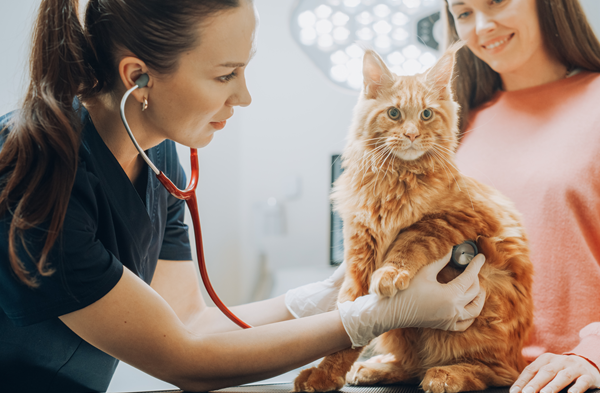
Have you ever wondered how veterinarians decide the best way to treat a sick dog or cat? They don’t just guess or rely on luck. Instead, many of their decisions are based on something called evidence-based medicine (EBM). Let’s break down what that means and why it’s so important in veterinary care.
What is evidence-based medicine?
Evidence-based medicine is a way to make decisions about treatments by using the best available research. Imagine you’re a scientist trying to figure out the best way to help an animal feel better. You wouldn’t just pick a treatment randomly, right? You’d look at all the research and data—like results from studies or experiments (clinical trials)—to find out what works best. EBM combines this research with the veterinarian’s own experience and the unique needs of each animal.
Here’s how it works in three steps:
- Research: Scientists study how different treatments work in animals. They might compare medications, surgeries, or even diets to see what gives the best results.
- Clinical experience: Veterinarians use their own knowledge and what they’ve learned from treating other animals to guide their decisions.
- Individual animal needs: Every animal is different, so vets consider the specific needs of each pet, like their age, breed, or any other health conditions they might have.
Why is EBM used in veterinary medicine?
- Better care for pets: Using evidence-based medicine means that veterinarians can choose treatments that have been scientifically proven to work, which helps pets recover faster and ensures they get the best possible care. For example, if a study shows a certain type of pain relief works best after surgery, vets use that treatment to help their patients feel comfortable.
- Safety: Some treatments can be harmful if they aren’t used correctly. EBM helps vets avoid using treatments that may cause more harm than good. It allows them to weigh the pros and cons based on solid research.
- Adapting to new discoveries: Science is always changing. New medicines and technologies are developed all the time. Evidence-based medicine allows vets to stay updated with the latest research, ensuring they use the most modern and effective treatments available. For example, a new study might show a better way to treat heart disease in cats, and vets will start using that method to keep their feline patients healthier.
- Personalized care: No two pets are the same. By using EBM, vets can personalize treatments based on what they know about the individual pet, its condition, and the latest research. This means your pet gets care that’s tailored just for them.
Anecdotal evidence: what is it and why isn’t it enough?
Sometimes, people make decisions based on anecdotal evidence, which means they rely on personal stories or experiences to decide what works. For example, if a pet owner says, “My dog felt better after eating this special food”, that’s anecdotal evidence. It’s based on one person’s experience, and while it might be true for their dog, it doesn’t mean it will work for every dog.
In veterinary medicine, anecdotal evidence can give vets an idea of what might help, but it’s not enough on its own. Why? Because it hasn’t been tested scientifically. A treatment that worked for one pet might not work for another or could even be harmful in some cases. That’s why veterinarians prefer evidence-based medicine, which relies on data and research from multiple cases to ensure the safest and most effective treatments. Using anecdotal evidence alone can sometimes lead to mistakes, so vets combine it with scientific studies to make the best decisions for all pets.
Why should you care about EBM?
Evidence-based medicine ensures that pets, like your dog or cat, get the best treatment possible. It’s the reason veterinarians can provide safe, effective, and personalized care. The next time your pet goes to the vet, you can feel confident knowing that every treatment decision is backed by research, experience, and what’s best for your furry friend.
In short, evidence-based medicine helps vets do their job better and makes sure your pets stay as healthy as possible.


